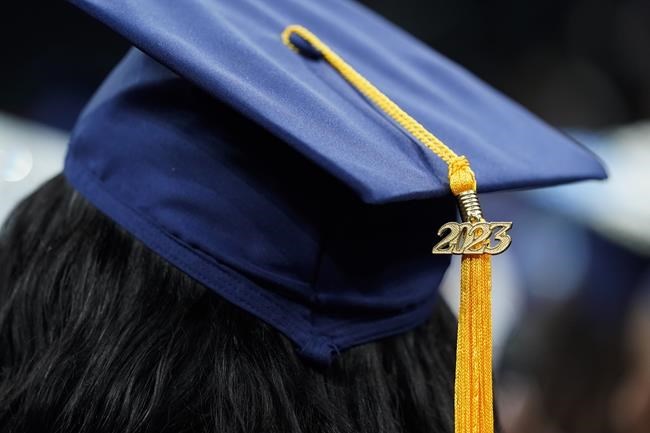For Canada's post-secondary graduates, the academic stress of school is often replaced by a whole new headache:years’ worth of student loans.
Deciding how and when to prioritize paying off that debt can make an already worrisome task that much more difficult, but experts say it shouldn't come at the cost of saving for the future — whether that’s retirement, a first home or even a basic emergency fund.
This was something Dennis Anthonipillai was especially attuned to when he graduated from his master’s of public policy program at Simon Fraser University in 2020.
To get through both his undergraduate and graduate studies, Anthonipillai took out a total of $27,000 in government loans and $5,000 in credit card debt. Though he tried to pay as much off as he could by working summer jobs during his degrees, the cost of living and tuition meant he could only start thinking seriously about paying off his debt after he was out of school.
“When I graduated, I couldn’t get advice from anyone I knew about how I should start paying off the debt I had,” he said. “So I went to Reddit, made the minimum payments I had to, and thought about it for a bit.”
He began by considering how his own circumstances worked for him. At the time, he still lived with his parents, and graduating during the pandemic meant the interest on his government loans was waived — a policy that was recently implemented indefinitely at the federal level and by multiple provinces.
Jessica Moorhouse, a personal finance counsellor whose expertise focuses on providing financial advice to millennials, said that identifying what’s unique about your own financial situation is one of the most important steps.
“There really isn’t a one-size-fits-all approach to personal finance,” she said. “You have to look at what you can make work and what you can’t.”
“Living at home is one of those classic examples of ways to put more money towards investments, but it isn’t possible for everyone — so someone who doesn’t have that advantage likely isn’t going to be able to repay their debt and save in the same way.”
Nevertheless, she pointed to a few “seemingly obvious but often overlooked” things recent graduates should keep in mind when planning their debt repayment strategy. The first decision should be to prioritize paying off loans with interest first, making only the minimum payments on those without interest, and ensuring debt-related stress doesn’t get in the way of building savings.
“If you know that if you put all your energy into paying off a loan on the smaller side, and you can get it done in a year or two, then that might make sense for you,” she said. “But if it’s a bigger loan that could take a decade to pay off even if you made more than the minimum payment a month, that could make years’ worth of a difference in terms of when you can retire.”
After landing a job with the British Columbia government, Anthonipillai used every advantage he had to see his repayment strategy through. He began by paying off his high-interest credit card debt, made the minimum payments required towards his student loans, saved up six months’ worth of an emergency fund, and eventually began putting about 20 per cent of his income into investments.
When the federal and B.C. governments announced a permanent end to interest on student loans, he doubled down on his strategy — resisting the common temptation to pay off his debt as soon as possible.
“As a student, debt is kind of a given,” he said. “So even though taking out loans made me anxious, I knew I couldn’t let that anxiety take over and stop me from investing.”
Otherwise, Anthonipillai added, he would have jeopardized his financial future in exchange for the unnecessary peace of mind of paying off a loan with no accumulating interest.
Instead, Anthonipillai has focused his personal finance strategy on diversifying his investment accounts. Though he still has a way to go in maxing out his tax-free savings account, he hopes he will be able to start putting some of his savings into a First Time Home Account to begin planning for his next stage of life.
“I’ve tried not to look at paying off my loans and investing as an either-or situation,” said Anthonipillai. “It’s really more about what’s been possible at different times in my life.”
Moorhouse echoed this sentiment, highlighting the importance of having and maintaining multiple financial goals as one enters their 20s and 30s with a mix of debt and investments.
“I feel like in personal finance, the advice given — or the answer people want — is, ‘Should I do A or B?’,” she said. “In reality, the way we run our financial lives is by finding a way to combine them both.”
“We should be working towards multiple financial goals at the same time. Maybe that means the timeline for the both of them will be increased a little bit, but the benefits of paying off your debt while investing are much greater than choosing to only do one or the other.”
This report by The Canadian Press was first published June 13, 2023.
Pascale Malenfant, The Canadian Press




